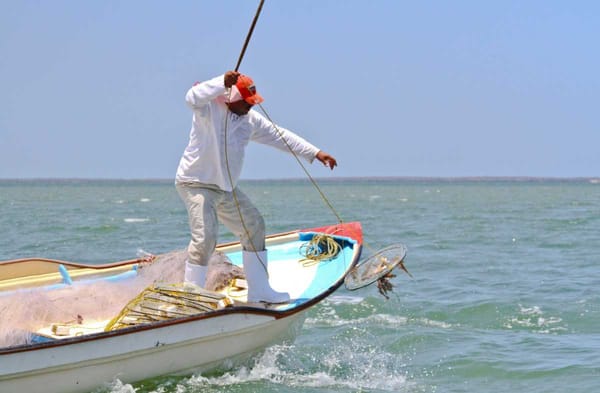Mexico's foreign policy towards Central American countries
The initiative of the President of Mexico is wise in the sense of considering the United States to make a joint effort to support Central America, said Vázquez Olivera.

Mexico's foreign policy towards Central American countries is differentiated and has a specific relationship with each one; however, any rapprochement is positive and contributes to improving the link between nations, said Mario Rafael Vázquez Olivera, from UNAM's Center for Research on Latin America and the Caribbean (CIALC).
"I think it is very significant that in his next tour of the region, our President will be accompanied by the Secretaries of National Defense and the Navy, which gives us the tenor of the priority issues of the joint agenda," he said.
With Guatemala, he explained, security and border issues are paramount; the convergence with the Salvadoran government is favorable, as is the objective of achieving a firmer and more constructive friendship with Honduras; and, of course, the visit is important for Belize.
He acknowledged that Mexico is no longer the "big brother" of the Central American countries, but the United States, because it did not know how to capitalize on the strategic alliances it had with prominent political and social sectors in that area. While we had conservative governments that looked to the north with great expectations, there were leftist governments in Nicaragua and El Salvador with which our country was unable to reach an understanding or renew alliances.
To regain that position we need to have a direct and clear presence, but we face internal problems, so "to add to that a policy that implies substantial financing in Central American countries is difficult to think about". Therefore, the initiative of the President of Mexico is wise in the sense of considering the United States to make a joint effort to support Central America, said Vázquez Olivera.
The doctor in Latin American Studies and expert in the history of the southern border and Mexico-Central America relations recalled that in the 1980s and 1990s of the last century, our country had a close relationship with those nations due to the regional conflict that took place; but once it ended, the government began to distance itself, although not in a categorical manner.
Subsequently, the Puebla-Panama Plan for regional cooperation and development emerged, whose goal was to promote integration and trade; however, the project remained on paper: "there were actions, but they were insufficient to fulfill the purposes of promoting the region after the wars it experienced".
Central America was abandoned by the United States, Europe, and, to a certain extent, Mexico, and fell into a deep economic, political and social crisis of which today we see the acute consequences: increased crime and insecurity, unemployment, and lack of opportunities. "The exit route for many people in the face of that situation is migration to the north, to the USA, but with an impact that we all know in our country."
President López Obrador has a plan to address this problem at its root, in its place of origin, "but this is a tremendous challenge that Mexico is incapable of facing alone. It would require the help of the Central American and Mexican governments and, as has been proposed, of the United States, as support to finance effective development programs that meet the desired objective", clarified Vázquez Olivera.
The university professor considered that in Guatemala there is a right-wing, repressive government; for example, it faces a socio-environmental crisis that motivates the mobility of numerous people who find migration the only way out to solve their lives, even though COVID-19 has considerably affected them.
Honduras has experienced an increase in violent gang activity, one of the reasons why migrants pass through Mexico, a nation with which it is even considering establishing a strategic partnership aimed at greater cooperation. Meanwhile, there have been disagreements with the Salvadoran government; however, when they meet, specific aspects will be discussed. In contrast, he highlighted the magnificent relationship with Belize.
From May 5 to 8, the Mexican President will meet with his counterparts from Guatemala, Alejandro Giammattei; from El Salvador, Nayib Bukele; from Honduras, Xiomara Castro; and from Cuba, Miguel Díaz-Canel; as well as with the Prime Minister of Belize, Juan Antonio Briceño. The tour is expected to conclude in Cuba.




